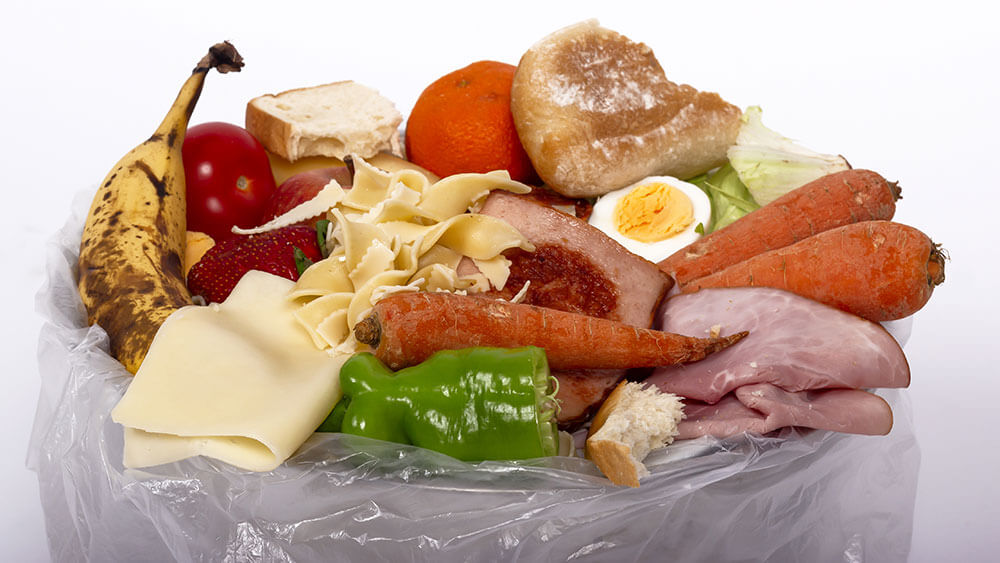The third annual Sustainable Gastronomy Day took place Tuesday. The United Nations initiative was created, in part, to promote a more responsible consumption and use of the world’s natural resources through sustainability efforts surrounding food and food production. Part of those efforts include reducing food waste, a challenge that the events industry seeks to address.
According to the UN’s Food and Agriculture Organization (FAO), an estimated one-third of all food produced for human use, valued at $1 trillion, is lost or wasted each year. Meanwhile, about 795 million of the estimated 7.7 billion people on earth — or 1 in 9 — do not have enough food to lead a healthy active life, the Food Aid Foundation reports.
As Convene Editor in Chief Michelle Russell points out in her latest column, the issue led Lime Venue Portfolio — a collection of venues throughout the U.K. and Ireland — to launch an initiative, #FORO (fear of running out), to help venues, caterers, event organizers, and delegates work together to reduce the occurrence of food waste. Lime will present an educational session exploring the issue on June 27 at The Meeting Show in London.
During a recent PCMA Bites & Sites webinar, Tracy Stuckrath, president and chief connecting officer of Thrive Meetings & Events, discussed ways that event strategists, through menu choices for their meetings, can mitigate food waste.
The meetings industry in the United States alone spends an estimated $48 billion on food and beverage every year, Stuckrath said in the webinar. Between 30 and 40 percent of the food produced in the United States — or 63 million tons — is wasted, she said. She estimates that meetings and events generate about $21 billion of that waste.
Food waste occurs both in front of the house, when people take more food than they eat and leave food on their plates, and in back of the house, where complete meals remain untouched because attendance fell short of the guarantee.
Most of this uneaten food, Stuckrath pointed out, is still safe and nutritious as long as organizers and kitchen employees follow certain food safety standards, including keeping food temperature controlled and using the food within a designated period of time.
The Bill Emerson Good Samaritan Act and the U.S. Food Donation Act of 2008 were designed to allow organizations to donate food without liability, provided these safety standards are met.
Questions planners can ask their chefs ahead of an event include:
- How is the food and beverage being managed once it’s prepared and delivered?
- Will it be re-used in a different meal?
- Will it be donated or just dumped?
- Are the kitchens saving food scraps for reuse or compost?
Stuckrath also suggested event strategists conduct a food audit after events. They can ascertain the following information to help cut back on waste at future events, she said.
- How much uneaten food was left in the front of the house?
- How much unserved food is left in the back of the house?
- Can you cut back on variety while still providing a wide enough range to fit your attendees’ dietary requirements and preferences?
- What special meals ordered in advance (such as kosher, gluten-free, vegetarian) weren’t picked up — and why? In the future you may be able to change that result.
- What happens to any extra meals left if attendance is lower than your guarantee?
Stuckrath offered more ideas for planners — including what sustainability requirements to add to RFPs and contracts — during the session that you can watch at the PCMA website. Non-PCMA members will have to register, but the webinar replay is complimentary.
Sustainability in F&B for events will be one of the topics discussed during a Bites & Sites session, titled “Challenge the Food Connoisseurs,” at PCMA’s 2019 Education Conference, June 25–28 in Los Angeles.
More on Food Waste, Related Topics
- Getting to the Root of Food Waste
- A Smarter Way to Fight Food Waste
- Why Food Choices Matter at Events
- 4 Tips for Selling Sustainability


